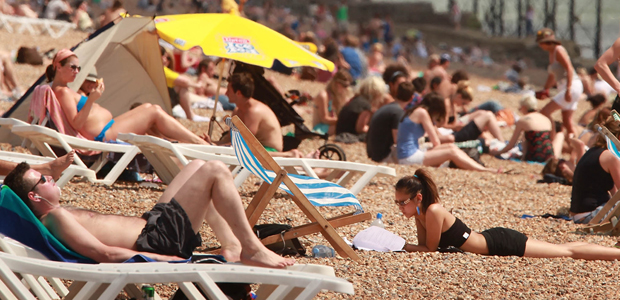2011: the UK’s second warmest year on record
It may have been a disappointing summer, but according to the Met Office, 2011 was the second hottest year on record with an average of 9.6C.

Only 2006, with an average temperature of 9.73C (49.5F) was warmer than 2011’s average temperature of 9.62C (49.3F).
The year saw high temperatures for some periods, including the warmest Spring temperatures on record, the second warmest Autumn and the warmest October day, but the summer overall remained below scorching temperatures.
Early figures also show that contrary to the freezing temperatures last year, this December has been “close to average”.
John Prior, national climate manager at the Met Office, said: “While it may have felt mild for many so far this December, temperatures overall have been close to what we would expect.
“It may be that the stark change from last year, which was the coldest December on record for the UK, has led many to think it has been unseasonably warm.”
All of the UK’s top seven warmest years have been in the last decade. Globally, 2011 was the 11th warmest year on record – cooler than 2010, which was noted for its scorching temperatures across the world.
Read more: Get the latest weather forecast from the new Channel 4 Weather site
Hottest place in the UK
Gravesend in Kent had the warmest temperature on record, 33.1C (91.5F) on June 27 – the warmest temperature recorded in the UK in the last five years.
The town also recorded the hottest October temperature ever, reaching 29.9C (85.8F) on the first day of the month, beating Cambridgeshire’s 1985 record of 29.4C (84.9F) on the same date.
The unfortunate holder of the coldest temperature on record is Altnaharra in the Scottish Highlands, which recorded a temperature of minus 13C (8.6F) on 8 January. The strongest gust of wind was 165mph (265.5kph), recorded at the summit of the Cairngorms on 8 December.
Umbrella weather
Scotland had its wettest year on recorded, recording 73.2 inches of rain, which beat the previous record, set in 1990.
However parts of England recorded unusually low levels of rainfall: East Anglia had its second driest year on record, with just 17.6 inches of rain while the Midlands recorded its third driest with only 23 inches.
The Department for Environment, Food and Rural Affairs (Defra) had to grant South East Water a drought order in December to help it refill Ardingly Reservoir, which was just 12 per cent full by the end of November, because of “an exceptional lack of rain over the last eight months”.
South East Water said at the time: “Normally we would expect rainfall in the early autumn to replenish our reservoirs after the summer, but an exceptionally dry September, October and November raised the urgency of the situation.”